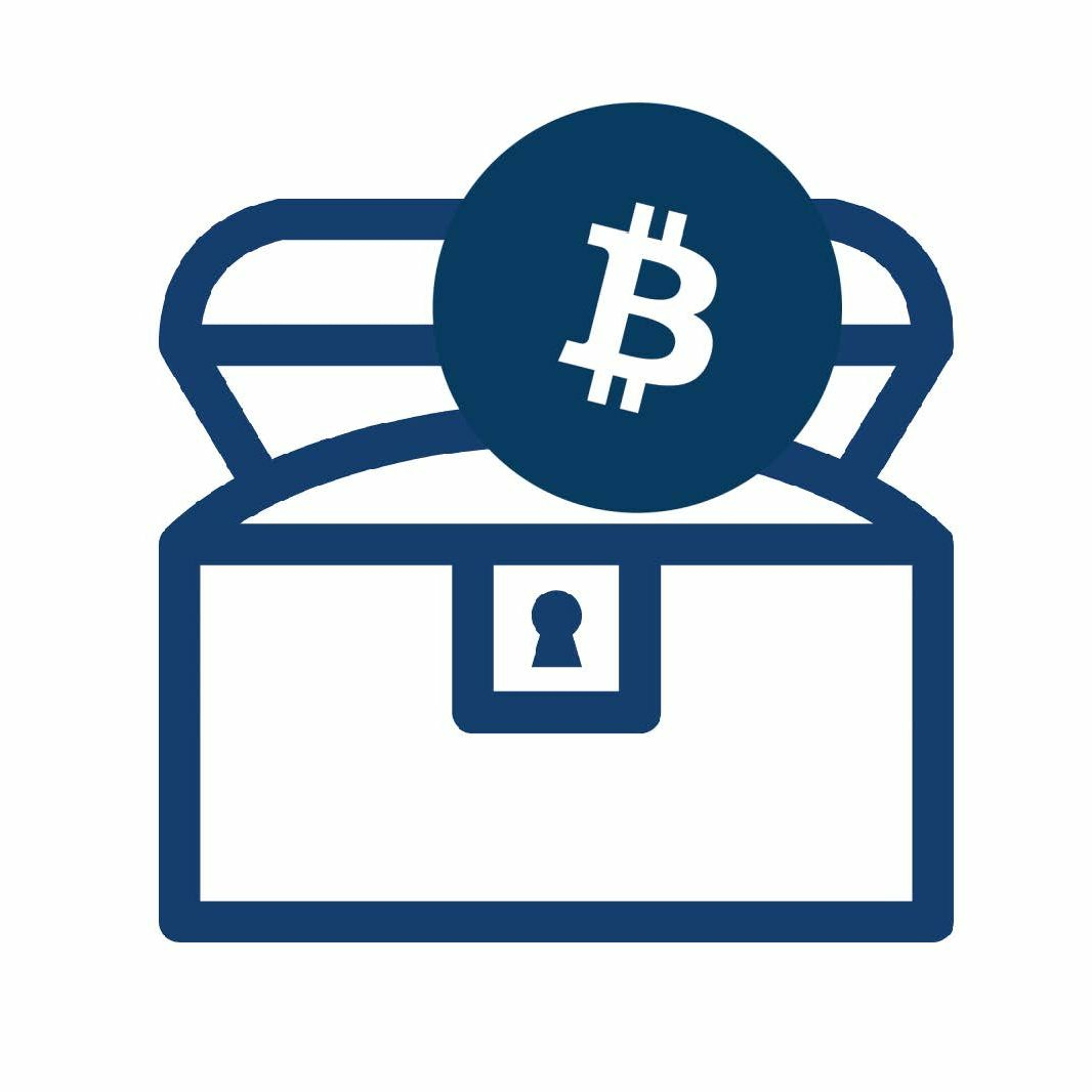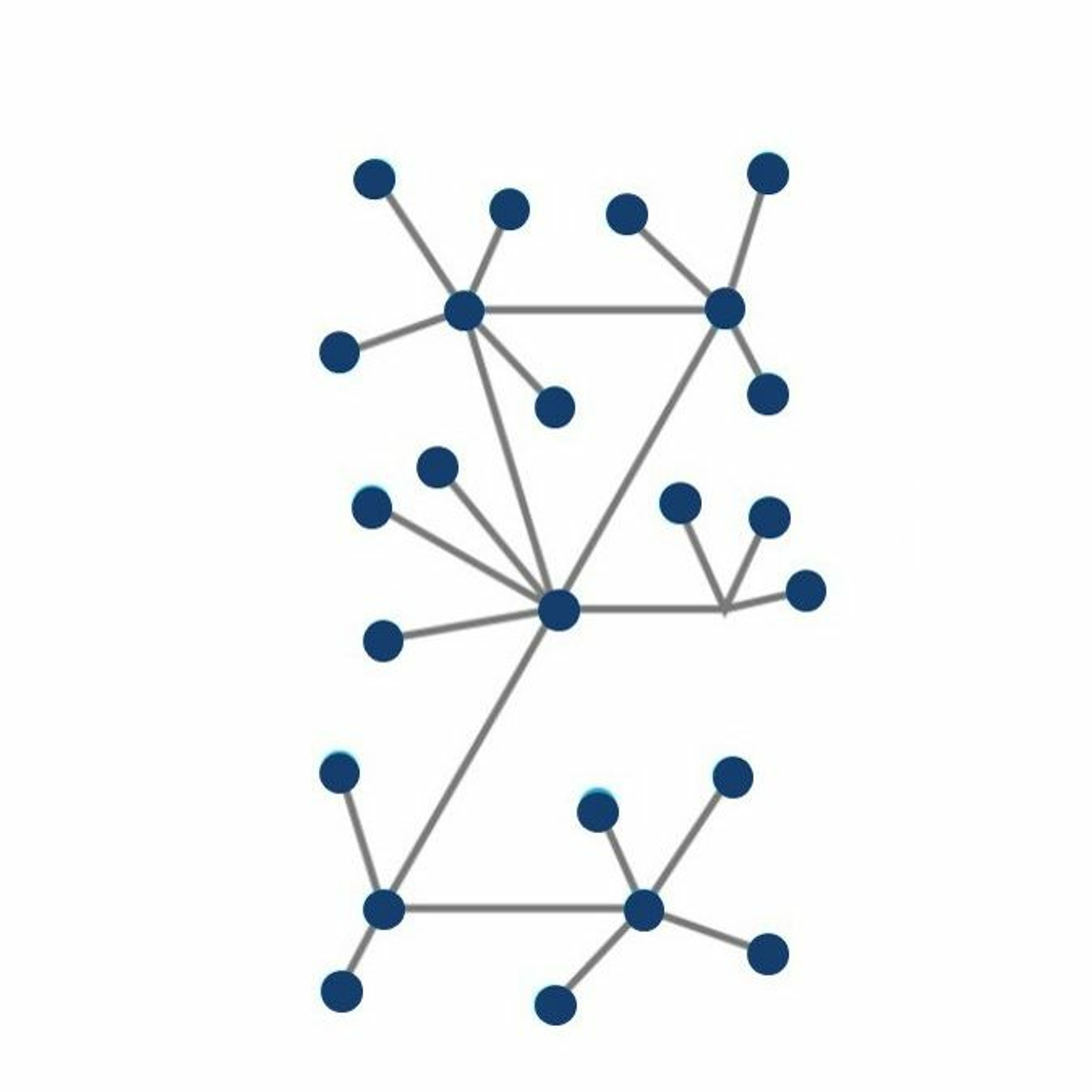Discover Crypto Finance: Knowledge Session
Crypto Finance: Knowledge Session

38 Episodes
Reverse
File sharing has been around for quite some time now, but some projects -such as the mainnet launch of filecoin, the timely reason for this episode - aim to add token-driven incentive structures into a world that was previously run by altruism and pragmatism.
Crypto Finance's Head of Research, Dr. Lewin Boehnke, looks at the cryptoeconomics and token value proposition of distributed file storage.
Due to poor audio quality near the end of the recording, we unfortunately had to cut this session a bit short, removing some of the Q&A.
Patrick Heusser, Head of Trading with Crypto Broker AG, shares his vision about what is needed to make DeFi relevant to a broader audience over the next five to ten years and which players - states and corporations - are to likely make this happen.
Not everybody in the Crypto Finance group shares that same vision, which made for a very lively discussion.
Blockchains fork from time to time, there are ample examples. Some fork more than others and for different reasons.
Crypto Finance’s Head of Research, Dr. Lewin Boehnke, takes the likely BCH chain split, planned for 15 November, 2020, as a sufficient reason to reflect on the ideological differences among blockchain communities and how and why this influences the likelihood of a chain split as a mechanism for resolving disagreements.
Most retail users would agree that it's a good thing that financial institutions that handle their money have some degree of regulatory supervision. Many holders of crypto assets hold in high regards their right to financial privacy and reject any attempts at supervision.
What happens if financial institutions handle crypto assets on behalf of clients? They have to be held to high standards and need to fulfil their AML obligations.
The announcement of an automated and compliant transfer between Crypto Broker AG and Mt Pelerin (https://www.cryptofinance.ch/en/first-automated-compliant-digital-asset-transaction/), itself a big but straightforward and expected step following the recommendations of the Financial Action Task Force (FATF), raised some privacy concerns in the purer crypto-centric community.
We brought in 21 Analytics founder Lucas Betschart to discuss what happened during this transaction, what type of information are and have to be exchanged, and with whom they are shared. We further discuss what impact this has on crypto asset holders who choose to not store their coins with a third party but be their own bank (spoiler: none).
Yes, the title is clickbait. No, we did not actually scam anybody and it is not really possible to do so (although we have a sneaking suspicion that some players are attempting just what is described in this episode).
Lightning's distinct topology is not as intuitive as bitcoin's simple 'broadcast every information to everybody' approach. That is the perceptual disadvantage of its better algorithmic scaling.
In this hands-on session, Dr Lewin Boehnke, Crypto Finance Head of Research, discusses this topology and the implications for routing, overall fee, and fee-gaming ideas.
When Ethereum Classic had its first noteworthy 51% attack, back in January 2019, Crypto Finance AG's Head of Research, Dr. Lewin Boehnke, felt obliged to record an 'Instant Emergency Education Session' for the team, to classify what happened and combat fear uncertainty doubt about that threatened to spread from this isolated event throughout the whole crypto asset ecosystem.
With now three 51% attacks happening on Ethereum Classic within just the last month, the attention is not that high anymore, and the attacks more a reflection of the overall state of ETC than a specific event.
Still, it seems like a good time to publish -outside the usual publication cycle every second Friday- this previously internal recording from 19 months ago. It is just as relevant now as on the day of recording.
After introducing into the concepts of DeFi in the previous episode by Bernadette Leuzinger, this time Crypto Broker's Senior Trader Patrick Heusser jumps right in to discuss projects, opportunities and risks.
DeFi, or Decentralized Finance, is a hype. There is hardly any other way to talk about this at this point. Warranted or not, what's behind it when the Plateau of Productivity is reached, that's what we discuss in a wide discussion throughout all areas of Crypto Finance AG, guided and moderated by Bernadette Leuzinger, COO of Crypto Fund AG.
Security is paramount in dealing with crypto assets, and the approaches range from pen-and-paper (and even dice and operations) to stand-alone technology.
Our Crypto Finance Head of Research and Crypto Storage CTO, Dr Lewin Boehnke, discusses the spectrum of operations, the technology applied in securing private keys, and emerging trends in these areas. The episode touches on the example of retail hardware wallets to illustrate general considerations, although the scope is not limited to this and is not to be construed as advice for personal security.
In a previous session we discussed bitcoin's "digital gold" meme. This time our Head of Research, Dr Lewin Boehnke, looks into the image that popular crypto assets aim at when portraying themselves, their goal and their target audience.
This session explicitly does not go into how and how well each of the assets achieve their goal, which each could easily fill an episode on its own.
The million dollar fees recently paid on Ethereum, independent of the actual reason or outcome of that particular story, serve as a good reason to review and discuss what types of problems can arise if fees are not taken into consideration when setting up security. Heists and blackmail are just the beginning of the potential risks.
Crypto Finance's Head of Research, Dr. Lewin Boehnke, discusses the foundational problems and implications, giving basic best practices for the handling and defining fees for various lock-up arrangements.
Our published podcast knowledge sessions usually refrain from discussing valuations. We sometimes hold such discussions internally, but they are typically not of interest after a few weeks and, as such, don't lend themselves to the format of an educational podcast.
This discussion is an exception. The topic is the 'intrinsic' value of bitcoin. Despite existing definitions of 'intrinsic' in economics and philosophy, this value appears to be surprisingly ill-defined and prone to individual interpretation when it comes to bitcoin. The question comes up frequently, especially in discussions with a wider audience, and often with the goal of confirming out that bitcoin presumably has no such value.
In this session, Crypto Fund's COO, Bernadette Leuzinger, moderates a lively discussion with several members of the Crypto Finance team, exploring the common ground for bitcoin, while looking at a few alternative examples of intrinsic value.
Two events in the last two weeks caused interest in early blocks of the bitcoin blockchain. First, an old block was moved, block number 3654 that was mined in the second month of bitcoin's existence. The second event was the signing of a message from 145 early blocks, just a week later. Both events gave rise to the question of whether those blocks belong to Satoshi.
If any message is signed or any coins are moved from an address belonging to Satoshi, it would signal that potentially 1.1 million BTC could be on the move that were previously widely regarded as permanently 'frozen', among other implications of course.
After the first of these two events, we discussed the field of blockchain archaeology that you hear in this knowledge session. Old node software and mining practices had quirks that compromised the miners' privacy and now, in hindsight, allow us interesting insights into those early days.
The most prominent example is the "Patoshi Pattern", which allowed the quick answer that neither of the two events were likely to be related to Satoshi.
This session included showing a chart from https://satoshiblocks.info. We believe that the recording is useful even without this chart, but a quick glance over there does not hurt.
Bitcoin's genesis block encoded the news headline "The Times 03/Jan/2009 Chancellor on brink of second bailout for banks." During the recent halving, a miner encoded also a recent headline, "NYTimes 09/Apr/2020 With $2.3T Injection, Fed’s Plan Far Exceeds 2008 Rescue" into the blockchain forever.
With fears of inflation growing in the public discourse for some countries and regions, we take advantage of the pertinent personal experience of a member of our team, Crypto Broker AG's Backend Engineer Alessandro Chacón. who gives his personal account of how hyperinflation played out in Venezuela and what role harder currencies, as well as Bitcoin, play in the daily life of ordinary citizens.
This discussion intentionally does not address the macroeconomic aspects of the likelihood of inflation, which will greatly differ throughout the world, but it does review a local playbook and the consequences for society.
Flashback to pre-corona times in this episode, which was originally recorded in April 2018 to cover the time-less topic of hashes in general and their use in Bitcoin. In ensuring the integrity of the chain, generating addresses, linking transactions and mining. Hashes are one of only two cryptographic concepts that you need to understand to get the foundations of cryptocurrencies. The other one, signatures, we covered in a separate podcast before.
Being recorded pre-corona has two implications. It is much more interactive. Remotely, the discussions don't work that well. The recording quality however is significantly worse. Don't worry, after the first minute it improves, but does not reach the level that we have over a conferencing system where each participant has a dedicated mic.
The halving is coming up, current estimate is for May 11, give or take a few days. What sounds like a simple thing - to just pay 6.25BTC reward per block instead of 12.5 - develops quite some complexity in the ecosystem.
Crypto Finance's Head of Research, Dr. Lewin Boehnke looks at previous halvings in bitcoin and altcoins, and ultimately he has come to an intriguing realisation: the current starting point before the halving is sufficiently different from any previous halving that all bets are effectively off.
Decentralisation is, in some cases, a property of blockchains that is critical to the permissionless nature and, in other cases, pursued for its own merit. In many cases, especially when putting applications on top of a blockchain, some aspects of decentralisation are not required although they do not hurt the cause.
Crypto Finance's Head of Research, Dr. Lewin Boehnke, tries to walk this fine line and make sense of both successful and failed cases of building centralised applications on a decentralised platform.
With Coronavirus kicking off a COVID-19 health, economic, and financial crisis, Crypto Finance's Head of Research Dr. Lewin Boehnke and Crypto Broker's Senior Trader Patrick Heusser discuss the differences between the current crisis and the 2008 financial crisis, the role that gold plays in these crises, and the role that bitcoin may play this time.
Our knowledge pooling sessions are obviously impacted by the fact that many of our employees are working from home currently. The event happened almost exclusively as an audio conference. While it lost interactivity because of this, we hope that the content is still interesting.
Our Crypto Storage Business Development Manager Alexander Moser looks at gaming and the blockchain, exploring these purely digital valuables that are collectables and, as such, are verifiably scarce and have unmanipulatable handling.
The feasibility of games that reside completely on chain and the various models for such a game to interact with assets on chain give rise to different economic possibilities.
The take-home message number one: do not underestimate the potential of gaming on the blockchain, especially the potential monetarisation of games through scarce assets. To be clear, we are not talking about ICOs here.
In this episode, Bernadette Leuzinger, COO & CFO at Crypto Fund AG, gives an introduction to the Taproot development and its implications for bitcoin. If implemented, Taproot could be one of the biggest changes bitcoin has experienced since the introduction of SegWit in 2017.
Taproot aims to simplify and improve privacy for bitcoin transactions. Taproot is creating a debate among bitcoin developers, as they have been published as Bitcoin Improvement Proposals (BIPs). There are still quite some considerations. If implemented, it would bring about a soft fork in bitcoin. We discuss these considerations, bitcoin's MAST and P2SH, as well as what the cryptographic signature scheme Schnorr would brings to Taproot.
























